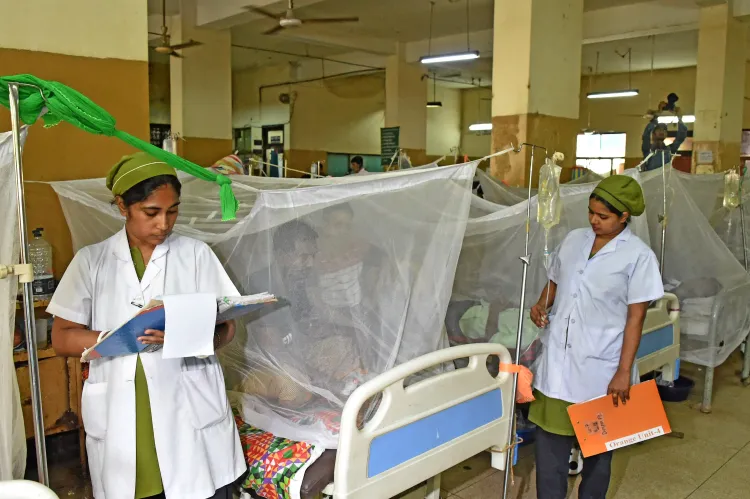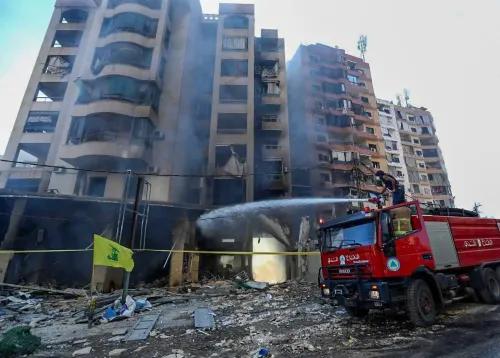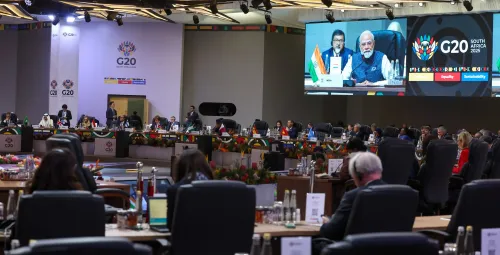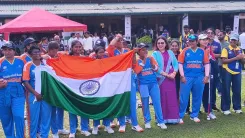Bangladesh: Have Three More Dengue Deaths Increased the 2025 Toll to 215?

Synopsis
Key Takeaways
- Three new dengue fatalities reported in Bangladesh.
- Total death toll reaches 215 in 2025.
- New treatment protocols implemented in hospitals.
- Dedicated wards for dengue patients are now mandatory.
- 60.9% of new patients are men.
Dhaka, Oct 6 (NationPress) In the last 24 hours leading up to Monday morning, three individuals lost their lives in Bangladesh due to dengue, elevating the overall death toll attributable to this mosquito-borne illness in 2025 to 215, according to reports from local media.
The fatalities were documented in the Dhaka South City Corporation (DSCC) and the Khulna Division, as per the Directorate General of Health Services (DGHS). During this timeframe, an additional 782 patients were hospitalized with viral fever, bringing the total number of dengue cases in 2025 to 50,689, as reported by United News of Bangladesh (UNB).
Currently, 851 patients are receiving treatment in Dhaka, while 2,473 individuals are being cared for in various healthcare facilities across the country. The report indicates that 60.9% of the newly diagnosed dengue patients are men, while 39.1% are women.
In 2024, 575 individuals succumbed to dengue. During the same timeframe, there were 101,214 reported dengue cases and 100,040 recoveries in Bangladesh, according to the DGHS.
On September 16, the DGHS implemented new protocols for public hospitals to enhance the treatment of dengue patients. Under these guidelines, all healthcare facilities in Bangladesh are required to set up designated wards for dengue treatment and establish a specialized medical team. The directive was issued by DGHS Director (Hospitals and Clinics) Abu Hossain Md Mainul Ahsan.
According to the DGHS, hospitals must ensure appropriate arrangements for dengue patients receiving care. Facilities for NS-1 tests, emergency services, and adequate medications must be guaranteed for patients, as reported by Dhaka Tribune.
Patients hospitalized for dengue should be accommodated in dedicated wards or rooms, with ICU support prioritized when necessary. Additionally, doctors and nurses have been assigned specific responsibilities.
The directive emphasizes forming a board comprising specialists in medicine, pediatrics, and other fields for the treatment of dengue and Chikungunya patients. This board will oversee trained doctors, medical officers, and residents providing care.
Furthermore, the same board and physicians are required to treat suspected patients visiting outpatient departments.
The directive also instructs hospital directors to communicate with city corporations or municipalities to initiate mosquito control and cleanliness initiatives around healthcare facilities. A dengue coordination meeting must be convened at hospitals every Saturday, chaired by the director, superintendent, and civil surgeon.
Dengue is a viral infection caused by the dengue virus (DENV), which is transmitted to humans through mosquito bites, as stated by the World Health Organization (WHO). Although there is no specific treatment for dengue, early detection and access to proper medical care can significantly reduce the fatality rates of severe dengue.









